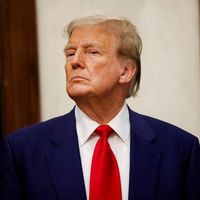Young and female Iranians excluded in male-dominated, aging government
The appointments of Mohammad Reza Aref, Mohammad Javad Zarif, and Mohammad Jafar Ghaempanah, all in their 60s and 70s, to senior roles by President Masoud Pezeshkian have sparked debates about the age gap between Iran's leadership and its younger population.
Aref (74) was appointed as Iran's senior vice president, Zarif (64) as deputy for strategic affairs, and Ghaempanah, who is in his 60s, as vice president for executive affairs.
According to the latest figures available, Iranian between the ages of 20-39 comprise 31 million people, or more than one third of the population. Also, A 2020 study also showed that those between 25 to 40 years old comprised the largest part of the population.
Last week, when the first partial list of President Pezeshkian's proposed cabinet ministers was leaked to the press, critics noted that the average age of a majority of his potential cabinet ministers was higher than 62.
In a commentary on the Etemad Online website, pro-reform commentator Abbas Abdi wrote that the Iranian society is young and its male and female members are pluralist with a diversity of attitudes while those in top posts in the government are generally old males who share a single attitude on most issues.
In the commentary headlined "A young and diverse society and old and monolithic government," Abdi wrote that most Iranian managers are conservatives. However, he noted that hardline conservatives in the previous government were generally younger than officials in the governments formed before 2021.
He further noted that women have always had a very small share of government positions in Iran and men who did not subscribe to the official ideology were almost non-existent in the government.
Abdi recalled a debate about the lack of women university chancellors in Iran, despite women making up more than half of the students and 10 percent of the faculty. Someone argued that the issue wasn't simply gender discrimination. But Abdi questioned whether all the men in those positions truly deserved their roles based on merit. He concluded that we can only address gender discrimination if we can confidently say that all of those men earned their positions fairly.
Abdi, a member of Pezeshkian’s steering committee tasked with assessing politicians' qualifications for ministerial posts, added that more than 80 percent of candidates know in advance that they are not "qualified" for these roles due to restrictive criteria. Of the remaining 20 percent, half are uninterested in serving as cabinet ministers because they realize they won't be able to fully utilize their capabilities. This leaves only 10 percent of candidates, a number that shrinks to less than 5 percent when the names are submitted to parliament for a vote of confidence.
What Abdi did not say openly is the fact that regime insiders dominate government posts and ideological as well as political loyalty severely restrict the field of potential candidates.
"This is a catastrophic way of treating the country's human resources," Abdi said, noting that this approach has its most damaging impact on Iranian youth. Women and those who hold views different from the official ideology are also affected, effectively barred from meaningful participation in the country's affairs, and often driven to leave the country.
According to the pro-hardliners Hamshahri daily, the Raisi Administration was Iran's youngest government with an average age of 43 that was at least 10 years younger than its predecessor, the Rouhani Administration. However, the Raisi government was stacked with ambitious hardliners who mostly did not have qualifications for top government positions.
Zarif had promised to keep most cabinet ministers under 50, but the names circulating in unverified reports—such as Abdolnaser Hemmati (proposed Economy Minister), Es'haq Jahangiri (proposed Oil Minister), and Hossein Alai (proposed Industry Minister)—are all in their late 60s or mid-70s.







